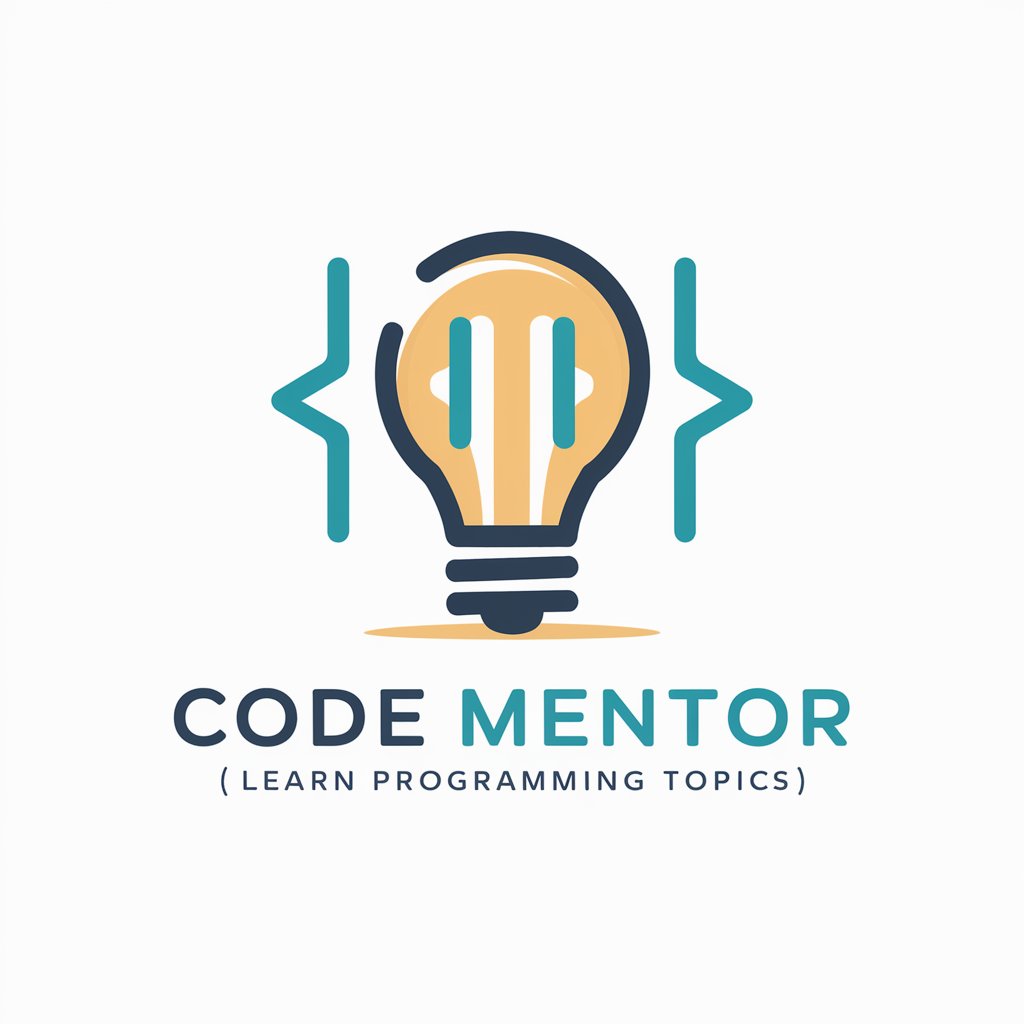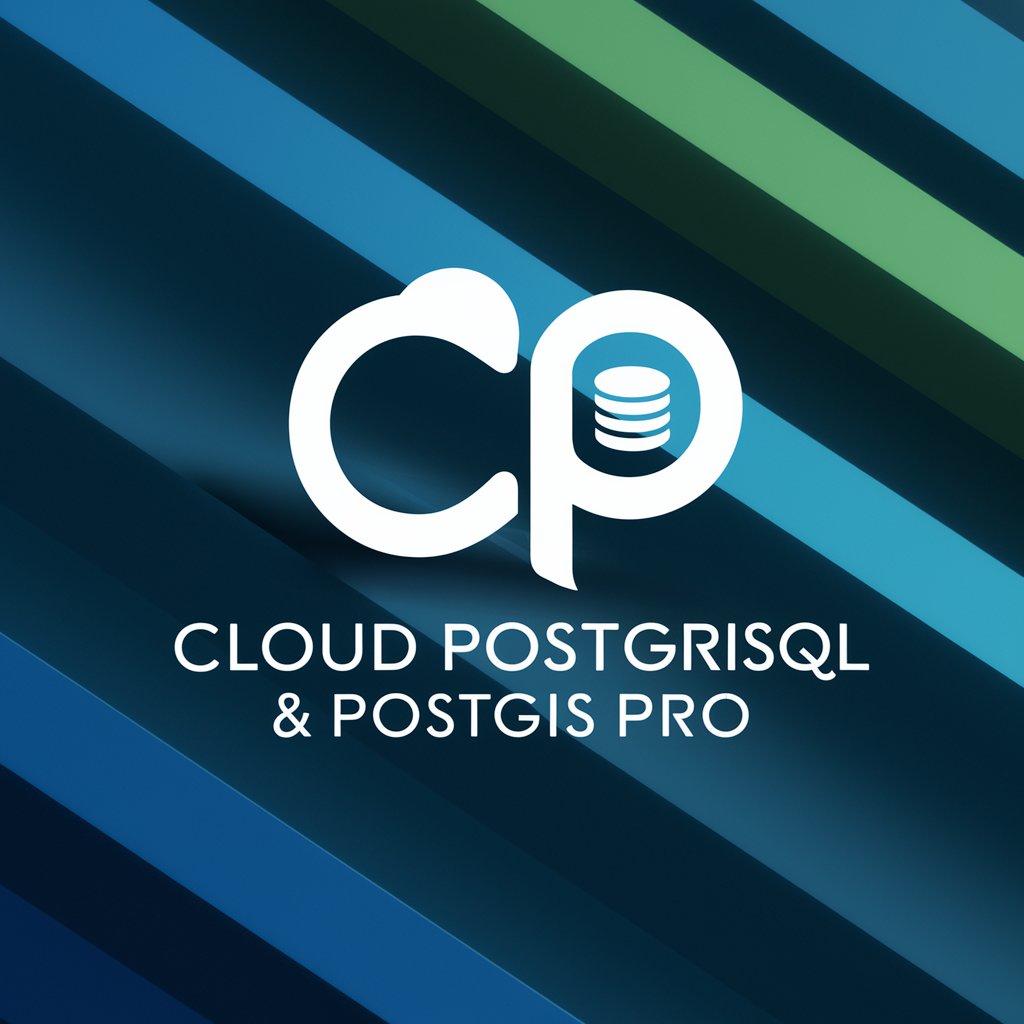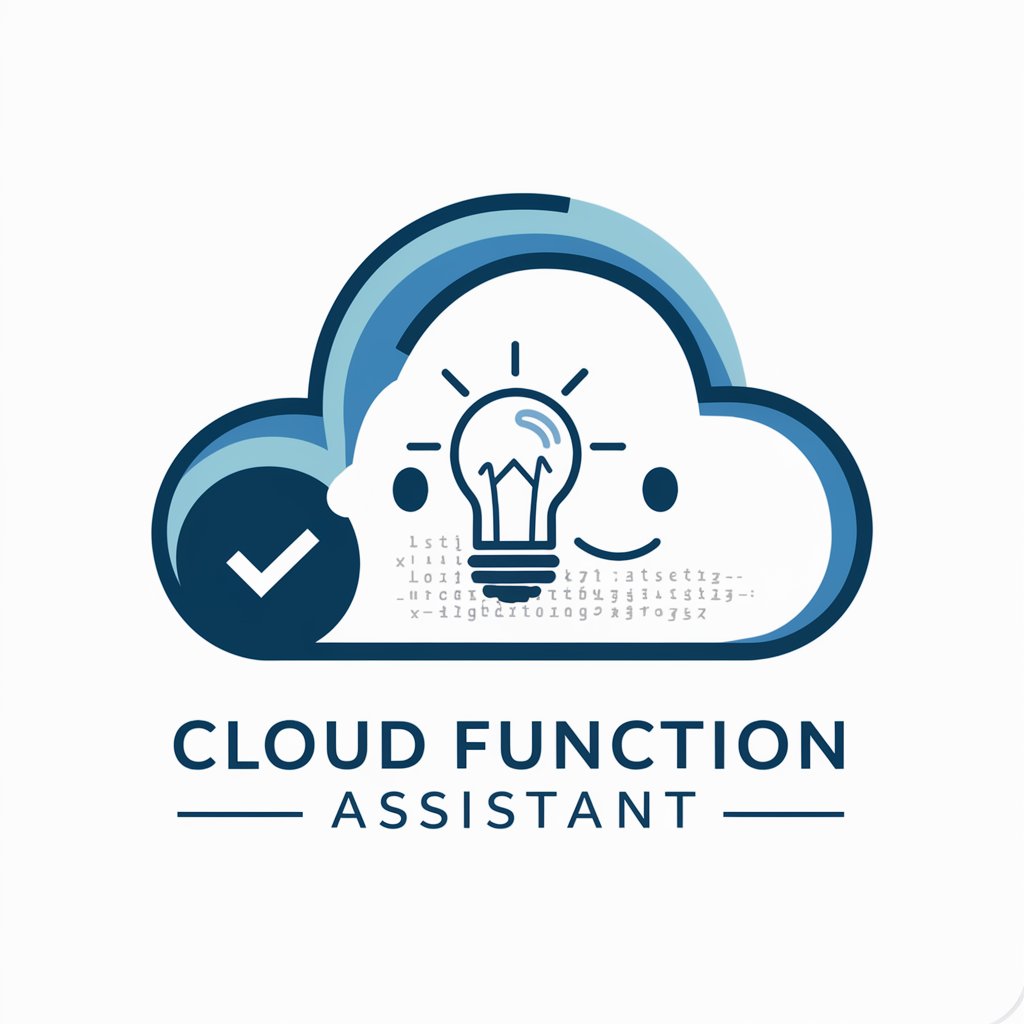Code Mentor | Learn Programming Topics - personalized programming education

Welcome to Code Mentor! Let's learn programming together.
Harness AI to Master Programming
Explain the concept of variables in Python and provide examples.
How does inheritance work in Java, and what are its benefits?
Describe the difference between SQL and NoSQL databases.
What are the best practices for writing clean and maintainable code in JavaScript?
Get Embed Code
Introduction to Code Mentor | Learn Programming Topics
Code Mentor | Learn Programming Topics is a specialized version of ChatGPT designed to assist users in learning programming languages and concepts. Its primary function is to provide detailed explanations, guidance, and support throughout the learning process. It offers structured learning paths, tailored advice, and practical exercises to enhance understanding and proficiency in various programming topics. For example, if a user wants to learn Python, Code Mentor provides a step-by-step course starting from basic syntax to advanced concepts like object-oriented programming and data analysis. Powered by ChatGPT-4o。

Main Functions of Code Mentor | Learn Programming Topics
Structured Learning Paths
Example
Providing a course outline for learning JavaScript, starting from variables and data types to more complex topics like asynchronous programming and frameworks.
Scenario
A beginner wants to learn JavaScript to build web applications. Code Mentor offers a detailed learning path that includes theory, examples, and exercises.
Detailed Explanations
Example
Explaining how recursion works in Python with examples and diagrams.
Scenario
A user struggles with understanding recursion. Code Mentor breaks down the concept, provides simple and complex examples, and explains each step.
Practical Exercises
Example
Creating exercises for practicing SQL queries, including SELECT, INSERT, UPDATE, and DELETE operations.
Scenario
A student needs hands-on practice with SQL. Code Mentor provides specific exercises and later reviews the solutions to offer feedback.
Tailored Advice
Example
Advising on the best practices for writing clean and maintainable code in C++.
Scenario
An intermediate programmer wants to improve their coding practices in C++. Code Mentor provides tips and guidelines on code readability, comments, and modularity.
Comprehensive Support
Example
Offering debugging help by reviewing and explaining errors in a Python script.
Scenario
A user encounters errors in their Python code. Code Mentor helps identify the issues and explains how to fix them.
Ideal Users of Code Mentor | Learn Programming Topics
Beginners
Individuals who are new to programming and need a structured approach to learning basic concepts and syntax. They benefit from the step-by-step guidance and practical exercises provided.
Intermediate Programmers
Programmers who have some experience but seek to deepen their knowledge and improve their coding skills. They benefit from detailed explanations of complex topics and best practices.
Students
Students who are studying computer science or related fields and need additional support and resources for their coursework and projects.
Professionals
Working professionals who want to learn new programming languages or frameworks to advance their careers or switch roles. They benefit from tailored advice and practical, real-world examples.
Hobbyists
Individuals who enjoy programming as a hobby and want to explore various languages and technologies at their own pace.

How to Use Code Mentor | Learn Programming Topics
Begin your trial
Access yeschat.ai to start your free trial of Code Mentor; no login or ChatGPT Plus subscription is required.
Select a programming topic
Choose the programming language or topic you wish to learn or improve upon from a variety of options available.
Provide your background
Inform the tool about your current knowledge level and any specific interests or goals to tailor the learning experience.
Engage with the content
Follow the structured course outline provided, including explanations, examples, and practice exercises.
Submit and receive feedback
Complete exercises and projects, submit them for review, and receive personalized feedback to ensure effective learning.
Try other advanced and practical GPTs
CS AI SEO Topic Map GPT
AI-Powered Topic Mapping and SEO Tool

יועץ היועצים
Empowering Consultants with AI-Driven Insights

E-commerce Copywriter Expert
Craft Your Market Success

E-commerce Image Genius
Power Your Sales with AI-Driven Descriptions

审稿编辑
AI-driven editor for flawless writing

친절한 산티노가 쓴 슬랙챗
Polish Your Messages with AI

Ocean Explorer
AI-powered research analysis and exploration.

Cloud PostgreSQL & PostGIS Pro
Empowering spatial insights with AI

Cloud Function Assistant
Empowering Cloud Innovation with AI

DigitalOceanGPT
Empowering Hosting with AI

Worksheet Wizard
Empower Education with AI

Nutri Asesor
Empowering Nutritional Decisions with AI

Detailed Q&A about Code Mentor | Learn Programming Topics
What types of programming languages can I learn with Code Mentor?
Code Mentor supports a range of programming languages from foundational languages like Python, JavaScript, and Java, to more specialized ones such as Go and Rust. The platform also covers frameworks and technologies like React, Node.js, and machine learning with TensorFlow.
Can beginners use this tool effectively?
Absolutely, Code Mentor is designed to accommodate learners at all levels, including absolute beginners. The platform provides introductory materials and gradually scales up in complexity to match the learner’s growing proficiency.
How does Code Mentor personalize the learning experience?
Code Mentor tailors the learning experience by initially assessing the user's current skill level and goals. Based on this information, it offers customized lessons and exercises that target the user’s specific needs and areas for improvement.
What is the feedback mechanism like in Code Mentor?
After submitting programming exercises, users receive detailed feedback that includes code reviews, optimization suggestions, and guidance on best practices. This helps learners understand their mistakes and learn more effectively.
Is there any community or peer interaction within Code Mentor?
While Code Mentor primarily focuses on individual learning, it occasionally facilitates peer discussions and group learning activities. These interactions help learners gain different perspectives and enhance problem-solving skills.
